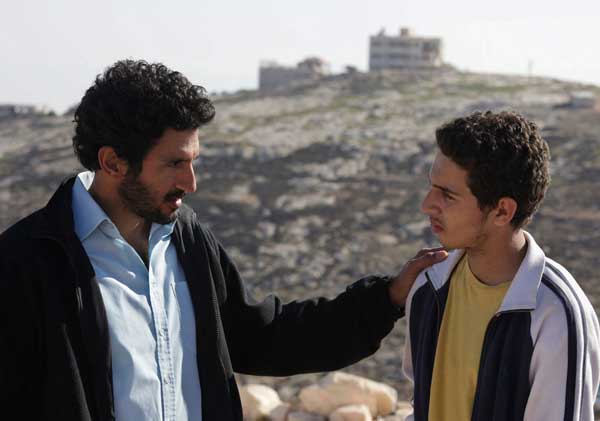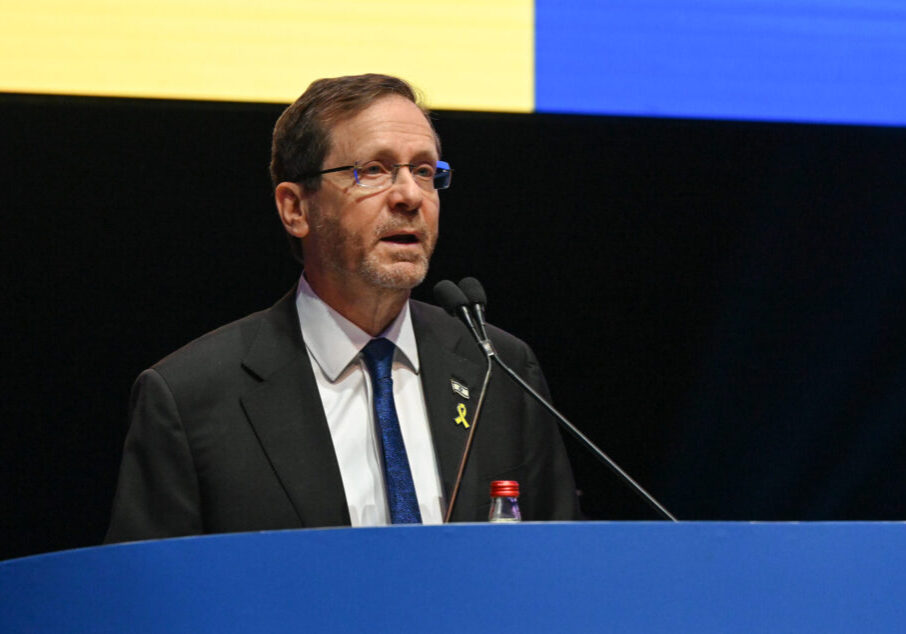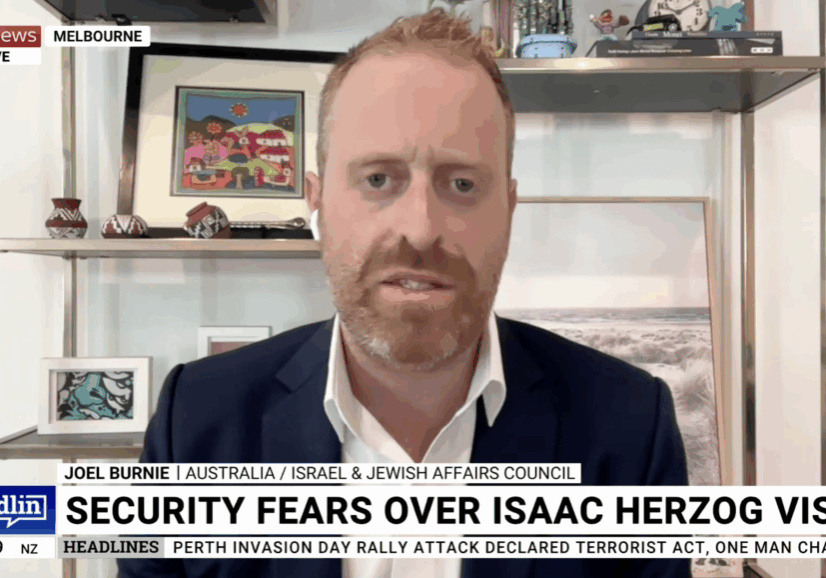Australia/Israel Review
The Cine File: Tragedy and Divided Loyalties
Aug 26, 2014 | Sharyn Mittelman & Or Avi-Guy

Sharyn Mittelman & Or Avi-Guy
Bethlehem
Director: Yuval Adler; Pie Films; 99 min.
Bethlehem is not a typical film about the Israeli-Palestinian conflict. Instead, its Israeli director Yuval Adler and screenwriter Ali Waked, an Arab journalist, have created a nuanced and complex portrait of divided loyalties that takes it beyond the news headlines.
Praised in some quarters – including an award in Venice, first prize at the Haifa Film Festival and six Ophir Awards (Israel’s national film awards) – it has also received criticism from the likes of far-left Israeli columnist Gideon Levy of Haaretz for being too apolitical.
Yet the reality is that, despite the intentions of the director, – who reportedly told an interviewer that he said to Waked, “Let’s make a movie that won’t deal with the political conflict” – Bethlehem cannot help but be somewhat political. The conflict is clearly the backdrop under which the story unfolds, and it yields insights into the reality of that conflict which a more deliberately “political” film might bypass or ignore.
Set during the Second Intifada around 2004-05, the film take the audience into the world of Israeli counter-terrorism intelligence, following “Shin Bet” secret service agent officer Razi (Tsahi Halevi). Razi has recruited a Palestinian teenager Sanfur, Arabic for “Smurf” (Shadi Mar’i) to spy on his older brother Ibrahim (Hisham Suliman), a leader of the al-Aqsa Martyrs’ Brigades terror group, as well as other friends and neighbours.
The close but cautious friendship between Razi and Sanfur lies at the heart of the film, and is portrayed as almost father and son-like. Sanfur, lacking clear role models, confides his daily problems to Razi. Meanwhile, as Razi solicits information from Safur, he attempts to shield him from Shin Bet operations that could endanger him, even deceiving his colleagues in the process. Yet underneath the friendship is also a web of conflicting loyalties, deception and betrayal.
Unlike many other movies about “the conflict” which place the Israel-Palestinian dichotomy at the centre, Bethlehem offers a more complex perspective with an unusual focus on the internal Palestinian dynamics, politics, power struggles and rivalries in the West Bank.
Screenwriter Ali Waked has the background to portray these dynamics realistically, having spent, in the words of a Haaretz article, “10 years reporting on the lives and deaths of Palestinians in the territories, hanging out with wanted terrorists in refugee camps, dodging bullets during 2002’s Operation Defensive Shield, and being rebuked by Palestinian Authority President Mahmoud Abbas for his coverage of PA corruption.” Waked has said he wanted the film to present a close-up portrait of Palestinian life in the West Bank and spent months interviewing Palestinians as he developed the screenplay.
Most of the characters in the movie are Palestinian and the dialogue is mainly in Arabic, in order to create a feel for the Palestinian street. The Palestinian Authority is represented by a corrupt politician who colludes with Israeli authorities, makes promises to his constituents that he never keeps and abuses EU aid funds to employ militiamen.
Then there is the power struggle and rivalry between the terror groups, in this case between Hamas and al-Aqsa Brigades. Yet the film also suggests that terrorist activity is an “industry” and in some cases is fuelled more by greed than loyalty – as al-Aqsa Brigades group leader Badawi (Hitham Omari) seeks Hamas funding when his backers run dry.
Caught in between are Palestinian civilians, exemplified by Sanfur’s father, who hopes that Sanfur will reject the violent path of his brother and who warns him to stay away from Ibrahim’s friends. However, at the same time his father appears to take pride in his eldest son’s leadership role in the al-Aqsa Brigades.
Also trapped is Sanfur, not between Israel and the West Bank, but between his act as a double agent, and his desire to prove himself and emerge from his brother’s shadow. Throughout the film, Sanfur appears to be a victim of his own environment – of the bullies in the neighbourhood, of his disappointed father, of Badawi and the al-Aqsa Brigades men who confront him with an impossible choice that can only end tragically.
Bethlehem is not an optimistic or uplifting story – it rightly casts the conflict as a lose-lose situation. Yet the film successfully transcends the traditional Israeli vs. Palestinian narrative, a framework that dominates so many films about the conflict. In doing so, it provides the viewer with far more complex, rich and nuanced questions to reflect upon.
Bethlehem is now playing at Cinema Nova in Melbourne and other art cinemas around Australia.
Tags: Israel






